SPECIAL REPORT | Seven years after mass graves of Rohingya migrants were found in the hills of Wang Kelian in Perlis, not only have the perpetrators remained unprosecuted, but checks found that human trafficking through the Thai border continues unabated.
International border closures in the past two years due to the Covid-19 pandemic had also ironically emboldened human trafficking syndicates, which continue to smuggle Rohingya migrants escaping violence or economic oppression in Myanmar.
But instead of the Wang Kelian crossing in Perlis, trafficking activities have shifted to the Bukit Kayu Hitam border area in Kedah some 65km away.
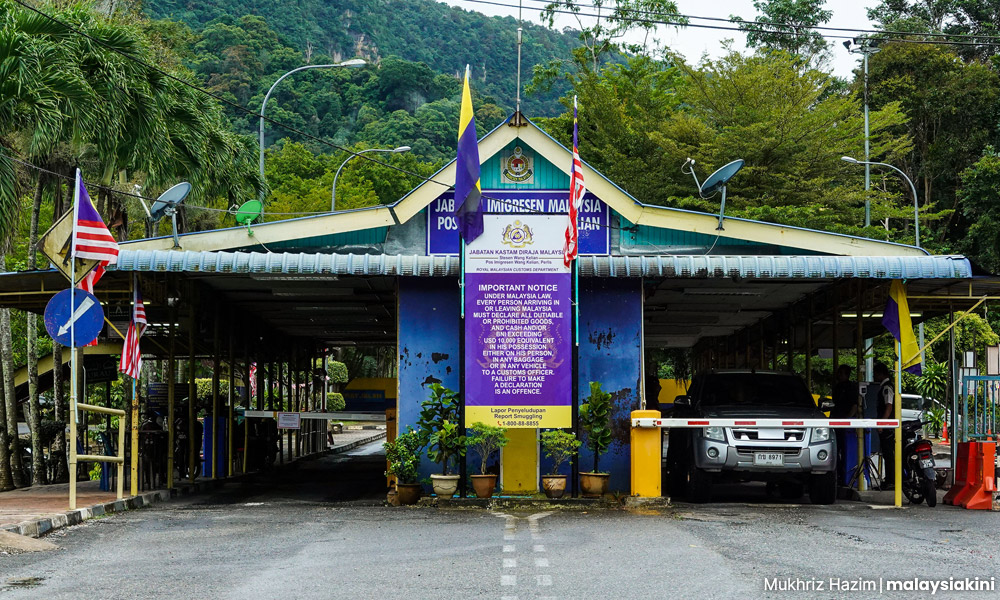
When met, multiple settlers at Bukit Tangga Felda located along the Thailand-Malaysian border in Bukit Kayu Hitam attested that human trafficking still happens in their midst.
But all who spoke to Malaysiakini did so on condition of anonymity fearing they could be harmed by the syndicates.
They said in some areas, the migrants will walk through the stream in the rubber plantations that run into both countries, using culverts as pathways into Malaysia.
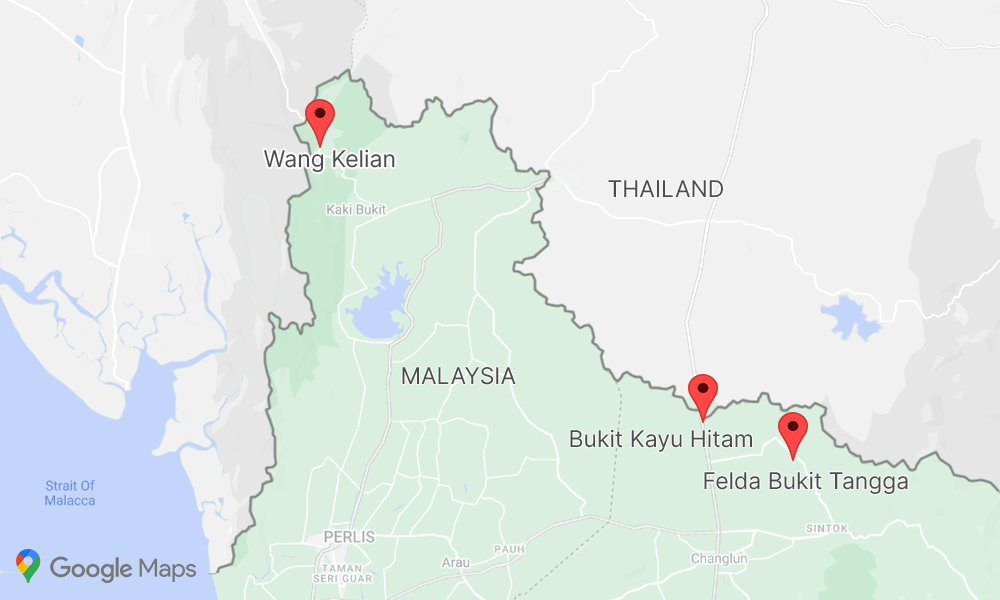
One of the Felda settlers, identified only as Ahmad, described the trafficking as an “everyday affair”.
“I am afraid to talk about it as they will finish me if they come to know that I spoke about them, but it is happening almost every day.
“Their networking is so good that they smuggle the people into our land through lorong tikus (smuggling routes) and escape without being tracked by security personnel.
“I fear for my life when I talk about human trafficking, but at the same time I cannot keep mum as it is the national security of the nation and illegal activities of the human trafficking syndicates could lead to other negative developments at the border,” he said.
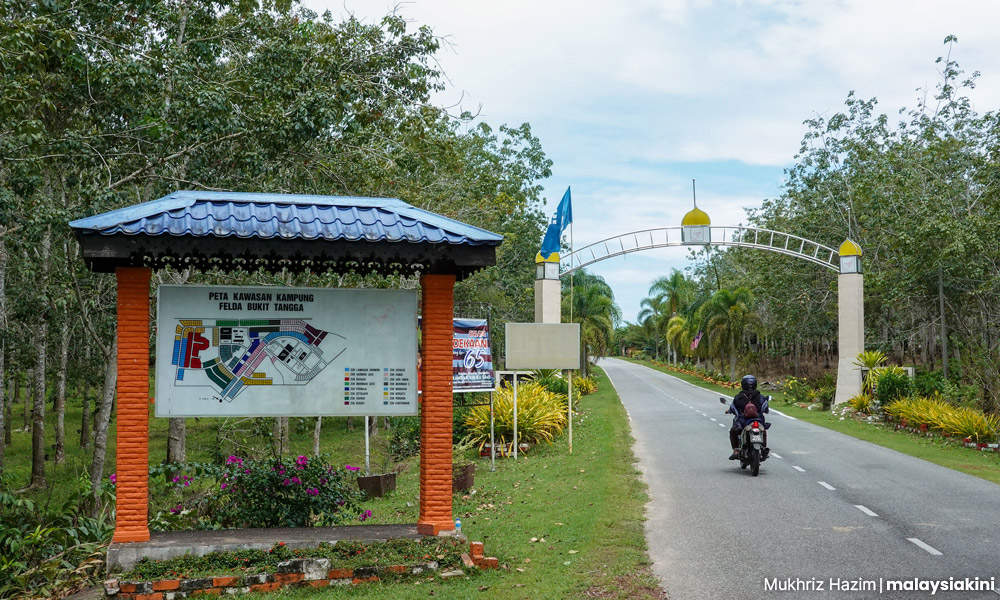
‘Cattle smuggling stopped, people trafficking continues’
At a coffee stall in the Felda, residents openly admitted that human trafficking continued despite the movement control order (MCO), but the smugglers are so well organised that settlers seldom see the syndicates in action.
“Cattle and goat smugglers were scared to smuggle the animals during the MCO and stopped doing it, but the people smugglers were brave and continued to smuggle humans into Malaysia.
“The agents will ensure that the migrants gather at a strategic point where the vehicle picks them up and flee from the area.
“If settlers notice the migrants, they will quickly alert security forces,” a villager who wanted to remain anonymous told Malaysiakini.
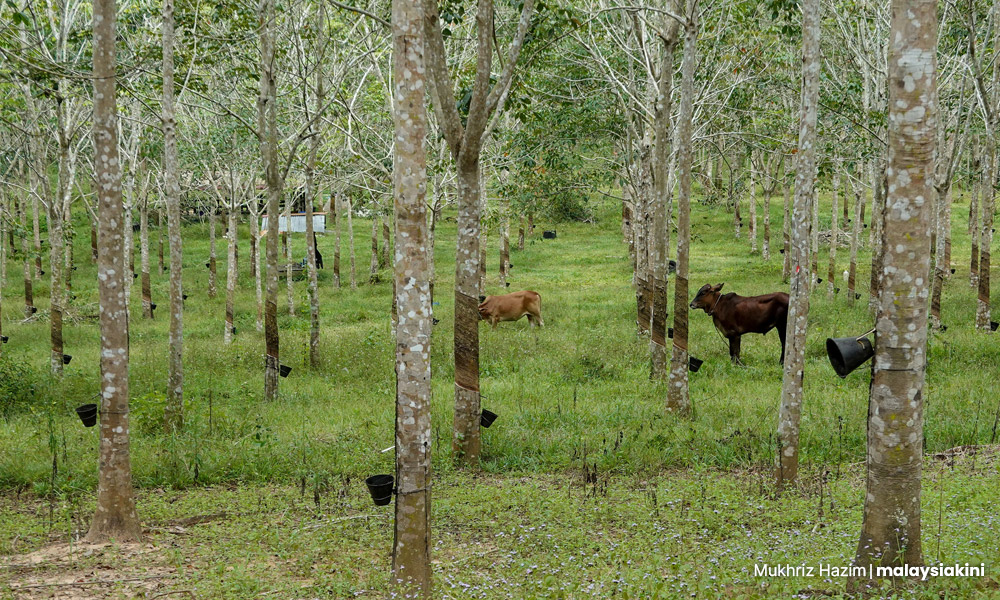
He said previously, some of the migrants lost their way and knocked on their doors seeking aid.
The villagers would then provide food, clothing, footwear and medicine, but after that, they would alert the authorities.
Another local who did not want to be identified said human trafficking and the migrants walking into their settlement is an open secret, with some said to have used cutters to create holes in border fences to cross through.
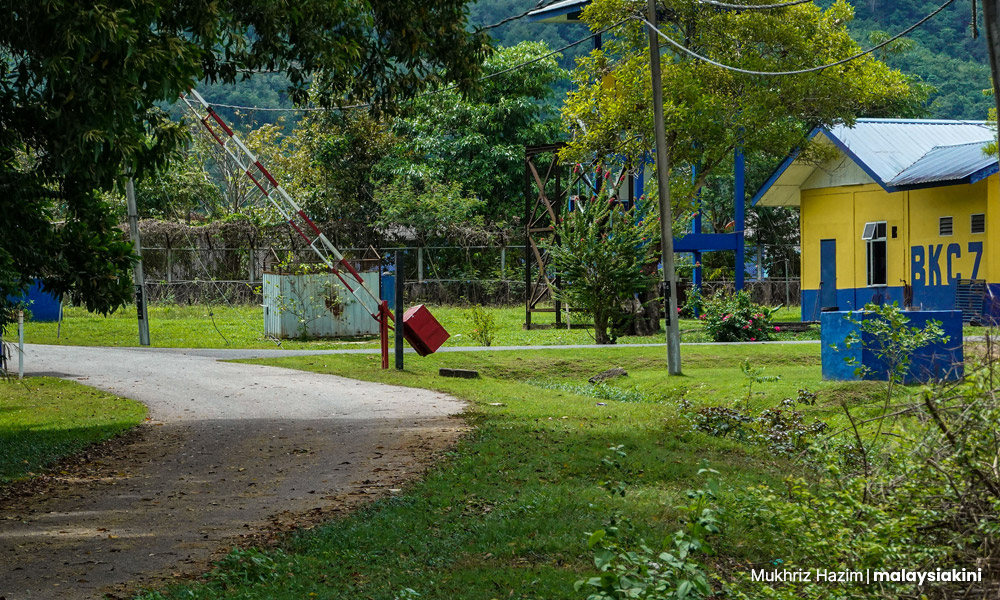
He said there are five army posts in Bukit Tangga Felda and the settlers need to show their identity cards each time they enter their rubber plantations.
The rubber plantations on hilly terrains beside the army post are about 2km from the Thai-Malaysian border.
Felda officers, who also spoke on condition of anonymity, agreed that the human trafficking activities have resumed.
However, they said security personnel do make arrests and inform them of those arrests.
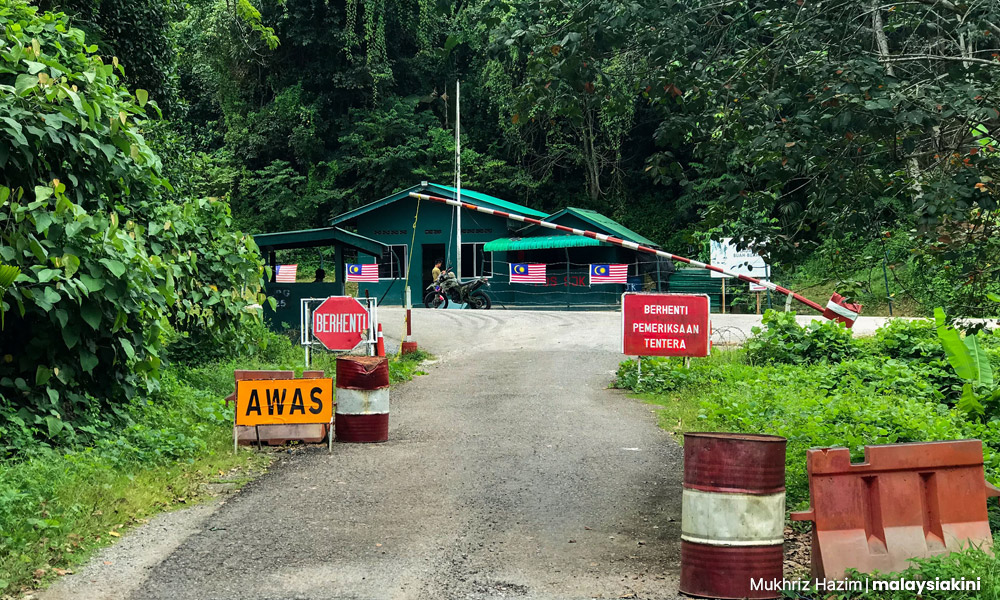
Trail used in Wang Kelian still fresh
Some 65km away in Wang Kelian, where a harrowing 139 graves and 28 migrant camps were uncovered by security forces in May 2015, all is quiet.
Villagers said they have not heard of any human trafficking activities recently, and the Wang Kelian flea market is unrecognisable compared to when it was a bustling stop for tour groups travelling to Thailand from Penang, Perak and Selangor.
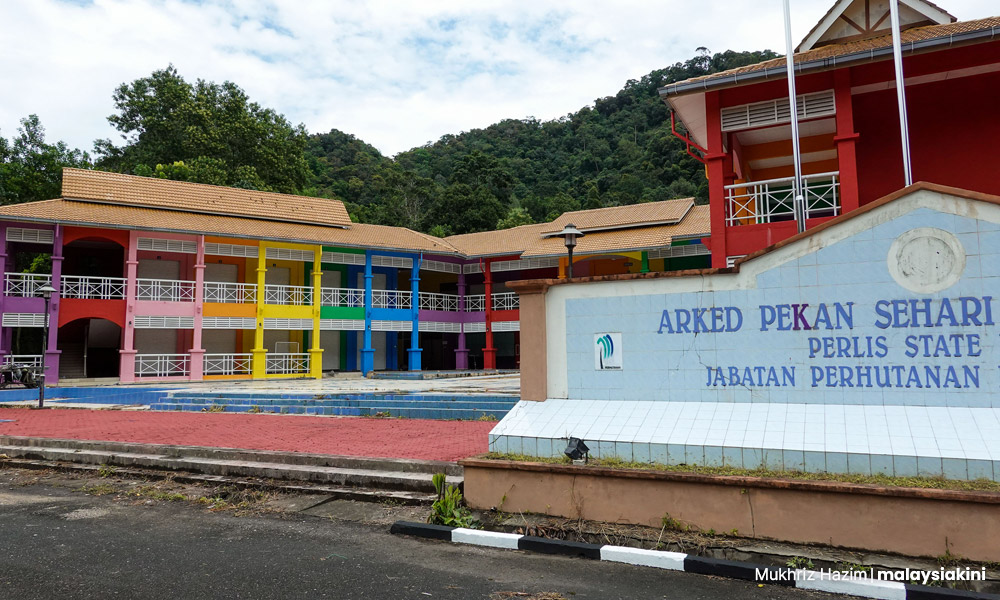
The complex (above) which once housed a flea market is being upgraded with the state planning to return the market to its former glory.
The market thrived not only from the patronage of tour groups, but local shoppers from both sides of the border.
Some decades ago, the Malaysian and Thai governments agreed to allow their citizens to travel 300m on both sides of the border without documents, giving them the chance to shop on either side.
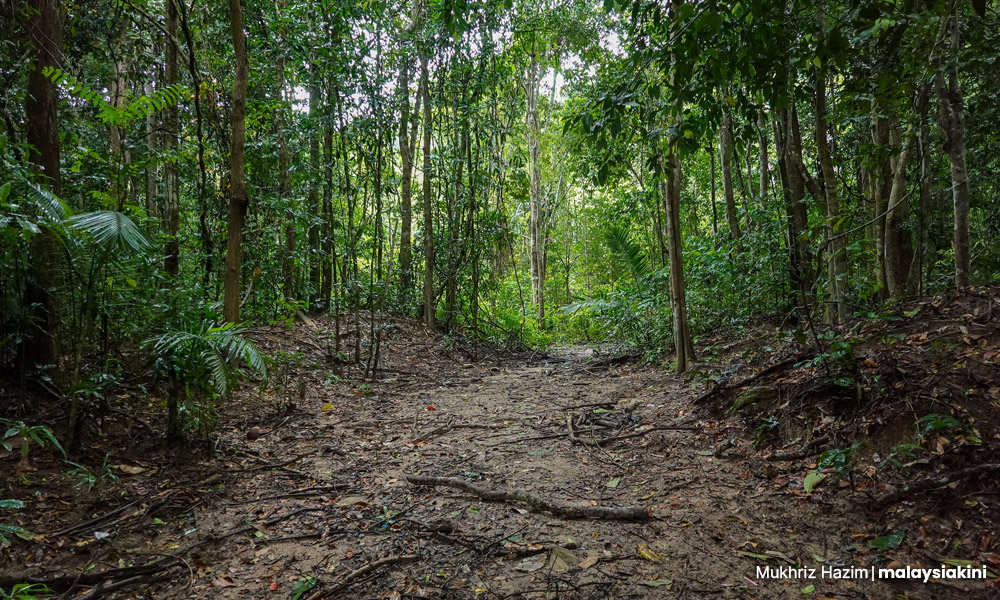
When the trafficking was uncovered, the Malaysian government closed down the market where some 200 local stall owners operated, but the market on the Thai side continued and is still flourishing.
Although locals said the trafficking activities are no more, the trail once used by migrants at the foothills of Wang Kelian remains fresh and not overgrown with plants after all these years since the graves were uncovered.
There were also freshly used shampoo sachets (below) and empty tonic drink bottles at the foothills, indicating the trail may still be in use.
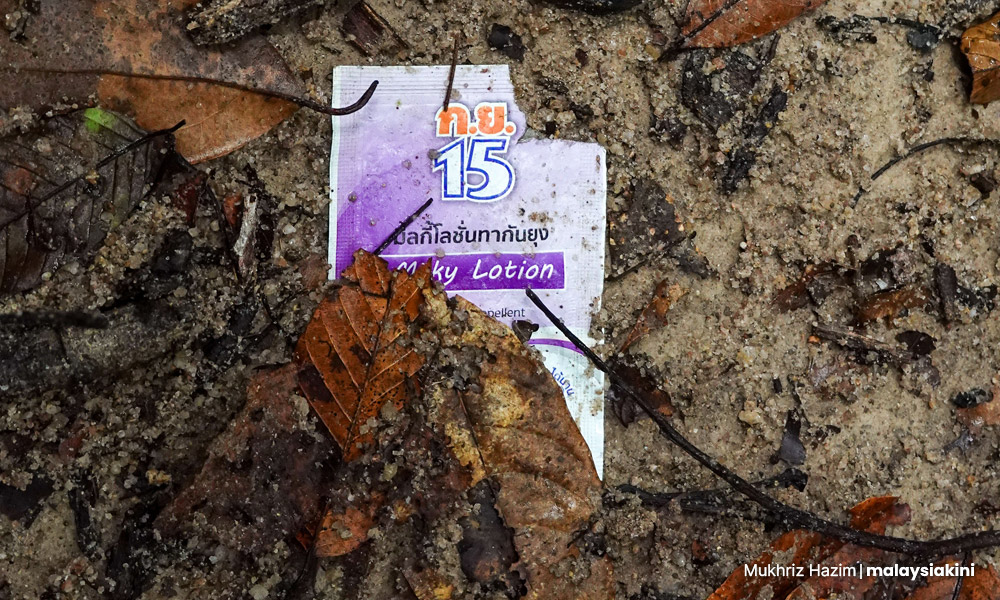
Travelling 600km with 11 in a Myvi
Recent arrests of migrants at the border, however, have mostly been in Bukit Kayu Hitam.
On Aug 17, the Malaysian Infantry Second Division, with headquarters in Bukit Kayu Hitam, said it arrested 12 Myanmar nationals who tried to enter through the border there.
The migrants, aged between 20 and 45, were arrested at about 11.20am during an operation in the rubber plantations at the border, in an area overseen by the Sixth Malaysian Infantry Brigade.
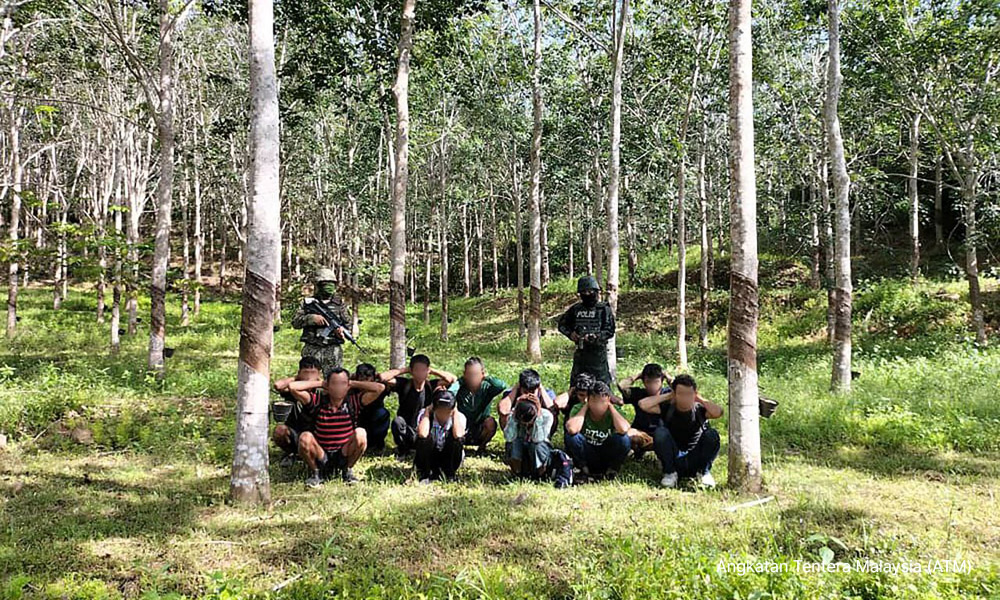
In November last year, security personnel arrested three Myanmar nationals spotted in a rubber plantation at the border during patrols at 2am, while in another bust, 12 were nabbed.
The migrants, caught at 1am, crossed into the rubber plantations by cutting the border fencing and hiding in the bushes, the authorities said.
But many have been able to leave the area undetected.
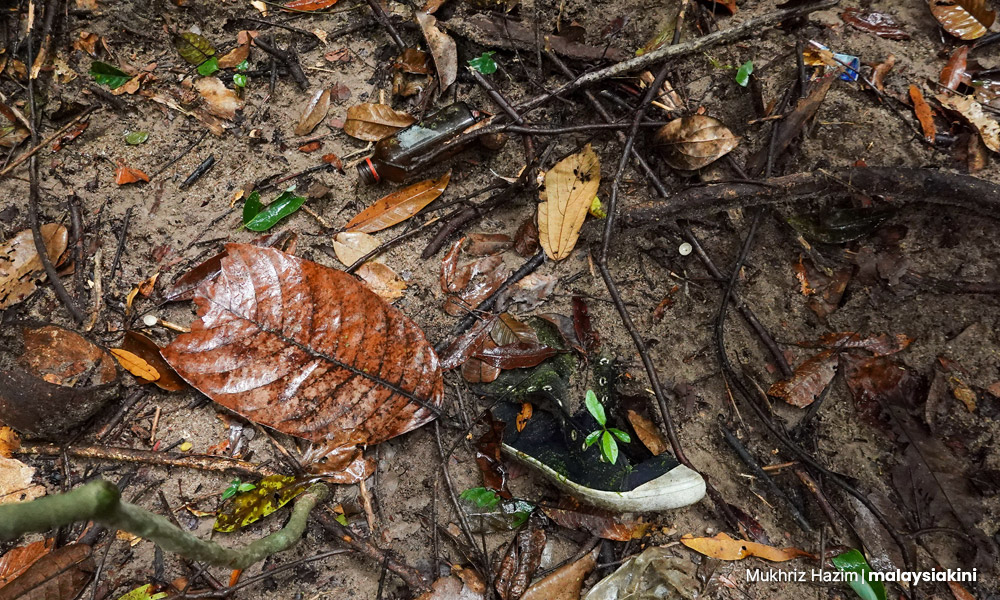
In early September, some 11 migrants managed to cross after hiding in a jungle near the Bukit Kayu Hitam immigration checkpoint where they waited for a signal from the traffickers, a source linked to an enforcement agency told Malaysiakini.
In the wee hours, they were collected near a petrol station and packed into a Perodua Myvi which had its seats removed, and were transported on a non-stop 600km journey to Klang, Selangor, the source said.
It is learnt that some of them paid RM5,000 to human traffickers to smuggle them in from Myanmar into Thailand and then into Malaysia.
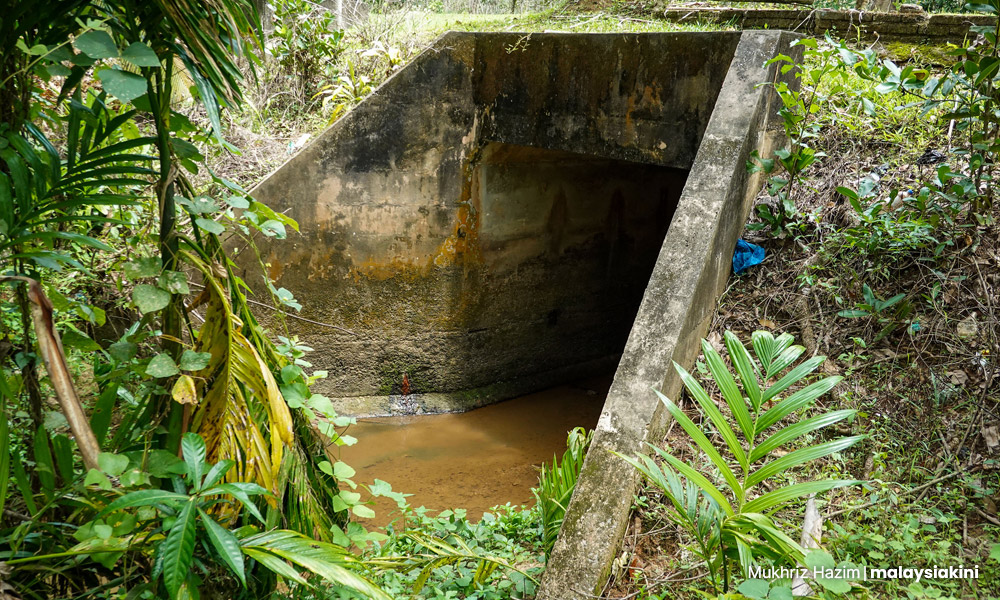
Kelantan busts
Since Wang Kelian, people smugglers have also started moving their operations to the Kelantan border.
There, the General Operations Force’s (GOF) Southeast Brigade said, they are spirited into a transit home, from which they will be transported to other parts of the country.
They cross into Kelantan via illegal jetties, with some paying RM4,000 per person for the one-way trip, the GOF said.
In April, 22 men and two women were found in one such home in Bunut Payong, Kota Bharu.
Operation commanding officer Azhari Nusi said the foreigners were suspected to have entered via illegal jetties and were heading to Penang.
In Bakong near Pasir Mas in the same month, the GOF arrested 17 migrants at about midnight as they travelled in an MPV towards Machang.
The Malaysian transporter, who was arrested, was believed to have collected them from an illegal jetty in Bakong.
The case is being investigated under Section 26(J) of the Anti-Trafficking in Persons and Anti-Smuggling of Migrants Act 2007.
Since the GOF took over to patrol the Kelantan border, more than 100 undocumented migrants have been arrested near there, Azhari said.
But like in the Wang Kelian mass grave sites, while trafficked migrants are placed behind bars, the traffickers and local operators of the scheme still remain free and at large. - Mkini

No comments:
Post a Comment
Note: Only a member of this blog may post a comment.